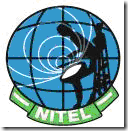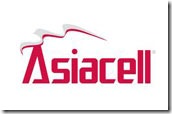Etisalat is close to finalising a deal to secure a majority stake in Iraq’s Korek Telecom, Etisalat’s chairman Mohammed Omran has announced. The UAE operator has been in discussions with Korek since September 2008.
Currently there are three operators in Iraq – Zain, Qtel subsidiary Asiacell and Korek. Korek holds a national licence, however its coverage is limited to mainly the northern part of the country and has long needed outside investment to fund network expansion.
Omran also stated the operator may seek to raise funding through bonds to fuel expansion into a further six markets outside its current 18 operations, including Algeria and Libya. An opportunity exists to enter Algeria through Orascom Telecom’s subsidiary Djezzy, with the Algerian government reportedly wanting Orascom to surrender its investment.
Etisalat has more than 100 million subscribers across its footprint in the Middle East, Africa and Asia, and hopes to increase international revenues from currently 10 per cent to 20 per cent within the next three years. The firm remains the Gulf region’s second largest telecoms firm by market value.





